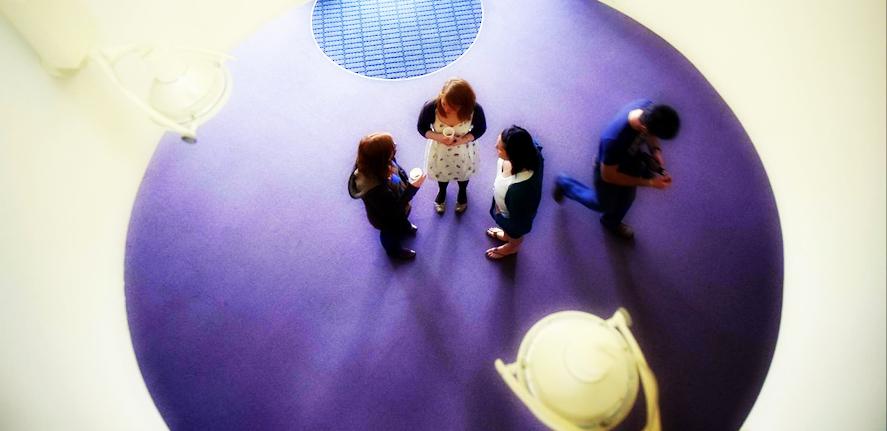
Theology, Religion and Philosophy of Religion at Cambridge
Our undergraduate degree is structured to allow you the choice to sample all aspects of the Theology, Religion, and Philosophy of Religion programme. We have particular strengths in religion in late antiquity, the philosophy of religion, Biblical studies, interdisciplinary religious studies, Indian religions, scriptural languages, Islamic Studies and Jewish thought.
The course allows you the freedom to choose from a range of religious traditions and allows you to pursue multiple interests from an historical, philosophical, theological, sociological or comparative perspective. You can combine an interest in Religion with History, Sociology, Anthropology, Philosophy, Literature, Politics, or Science.
Some students find it helpful to follow a thematic pathway, focusing on one area of special interest as they navigate through the many courses on offer, as described below. The decision will be yours and you are not bound to follow any particular path at any stage of the degree.
Detailed descriptions for current papers (modules) can be found here. Please note that these are subject to change each year.
Year One (Part I)
In year one you study five papers introducing you to our core subjects: theology, religion and the philosophy of religion.
1) One scriptural language: Hebrew, New Testament Greek, Sanskrit or Qur'anic Arabic
Cambridge is highly valued for offering a scriptural language, studied from scratch, as a compulsory element of the first year course. You can choose from Hebrew, New Testament Greek, Sanskrit or Qur'anic Arabic. This gives you a unique insights into the texts and will help you understand the impact of translation on understanding scripture. Look at our Learning a Language page to find out more about what this involves.
2) One paper on the Old Testament or New Testament
You'll also choose a Biblical paper. Textual analysis is a core part of your education in all fields of religion. By taking the Old or New Testament paper you will be well prepared for undertaking further study in any of the major world religions:
- David: Israel's Greatest Hero?
- Jesus and the Origins of the Gospel.
3) From here on, it's your choice...
Choose three papers from this list:
- Christianity and the Transformation of Culture
- The Question of God
- Understanding Contemporary Religion
- Studying World Religions: History, Comparison, Dialogue
- Philosophy of Religion
- Ethics
- David: Israel's Greatest Hero? (if not taken above)
- Jesus and the Origins of the Gospel (if not taken above)
Year Two (Part IIA)
This year builds on the knowledge and skills acquired in your first year. You take four papers from a choice covering a wide range of topics. We find that our students really value the opportunity to tailor the course to their specific interests. In your second year, you also have the option to take, as an additional paper, an Elementary Scriptural language from the first year options.
To see the current papers on offer for Part IIA (Year 2 of the degree), visit this page. Please note that the paper listings in the link reflect what is currently available, and are provided to give you a sense of what we offer. It is not an undertaking that these papers will be taught in future academic years.
Year Three (Part IIB)
In third year it is up to you to choose four papers from a wide choice. In your third year have the opportunity to really develop your own specialist interests. You can also write a guided research paper - a dissertation - on a topic of your choice. There is a particular opportunity to study topics that bear closely upon the cutting edge current research of our lecturers.
Our courses change annually to reflect current trends and research findings. You can explore the detailed descriptions of the papers available to current Third Year (Part IIB) students here. These are provided to give you a sense of what we currently offer. It is not an undertaking that these papers will be taught in future academic years.
Pathways through TRPR
Some students prefer to follow a specific pathway that matches their interests for one or more years. You do not have to formally opt for one of these and if you specialise in one year, you are not bound to do so in subsequent years. However, some students find that it helps guide their choices, given the range of option on offer.
Possible tracks include:
- Islamic Studies
- Jewish Studies
- Religious Traditions of India
- Biblical Studies
- Christian Theology
- Christian History
- Philosophy of Religion
- World Christianity
- Social Anthropology and Religious Studies (Modern Religion)
Please note that our courses change regularly.
